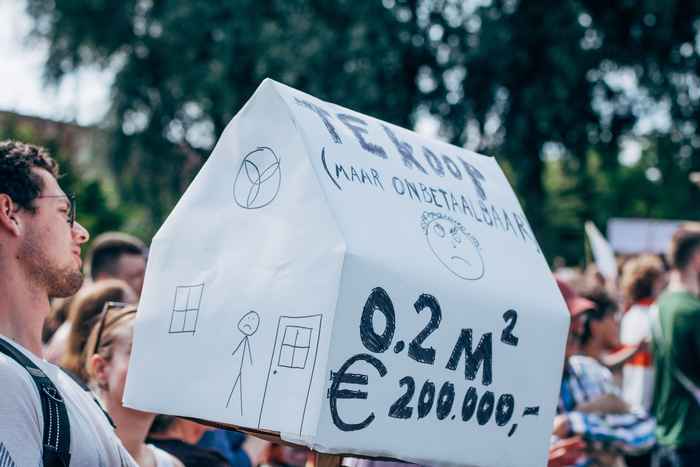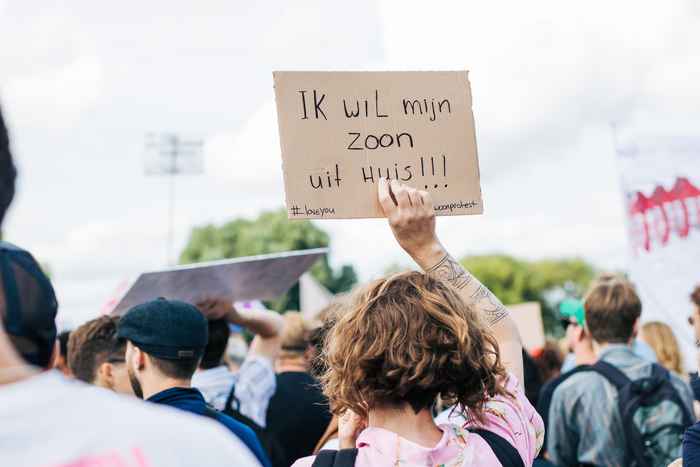To solve the housing crisis, we must rethink property rights
Amsterdam Law School
17 October 2025

What exactly are property rights?
‘Property law means that you are the lawful owner of something when, for example, you buy it in a shop. But ownership comes with rules. You may eat the apple you buy, but you may not throw it at someone. When you buy a house, it is yours – yet you must pay tax on it. There are many legal rules that limit ownership. It is by no means an untouchable right, and yet it is often treated as such. That is understandable: property rights are, after all, protected under the European Convention on Human Rights and therefore regarded as a human right.
My research looks not only at property as an individual right but also at how the entire system of rules concerning goods – ownership, use and transfer – together affect social inequalities.’

Ownership gives us opportunities – but can also exclude others
Why are property rights seen as untouchable?
‘Protecting the right to own things is important. But once we start treating ownership as sacred, we stop thinking about its negative effects on others. The distribution of homes on the housing market is not a natural phenomenon. It is the outcome of deliberate laws and regulations.
Ownership can create opportunities, but it can also exclude. Some people own 10 houses, while others have none. Money generates more money. You can see this reflected in wealth: it is becoming ever harder to get on that train of success.’
Is it fairer if landlords simply give away a few houses?
‘I don't think so. The problem is not with individual landlords but with the laws and regulations that make their position possible. The rights they have over residential property – including aspects of property law – need to be reconsidered.
In my research, I returned to the basic question: what do we actually want to achieve with property law? Ownership is a tool for creating a just society. I drew up a list of essential opportunities, such as access to affordable housing and access to education. Then I examined what is required to realise those opportunities.
What does it mean to have a fair opportunity to obtain housing? You must have access to adequate accommodation and the security of being able to remain there. And how do we distribute those opportunities? I argue that some people should be given priority – in this case, those without a home.’
The Netherlands ranks among the European countries with the most living space per person

How can property rights help prioritise people on the housing market?
‘By limiting property rights and attaching more conditions to owning or selling a home. As a homeowner, you are entitled to make a profit when you sell your house – for instance, if you have improved it by adding a dormer window. But there are also entitlements that do not enhance living conditions and that make it harder for others to enter the market.
Think of the huge capital gains that arise in an overheated housing market without homeowners doing anything for them. It would be fair to tax those gains. Ultimately, it is also about the impact your ownership has on others.’
How does politics view this?
‘In The Hague, there is broad agreement that everyone should have a roof over their head. But many political parties treat property rights as sacred, often because their supporters are homeowners. Yet again, the point is this: you have a right to property, but that right can be limited.
There have been cases where rent controls were introduced and some landlords went to court, claiming this restricted their property rights. The courts have held that such restrictions are permissible. The fact that property rights appear on the list of human rights does not make them absolute. What is far more powerful today is the perception that the right is inviolable.’
As far as I am concerned, the right to property is subordinate to the right to housing
‘Homeownership can support the right to housing, but it is not a prerequisite – renting can too. And ownership need not be protected indefinitely. Quite a few people now have second homes, and many live in very spacious houses. The Netherlands ranks among the European countries with the most living space per person.
That has not gone unnoticed: Parliament has just adopted a vacancy tax to make better use of housing, and The Hague has also decided to make it easier to split homes to create more living units.’
What can legislators do with your research?
'My research shows that it's crucial first to think about what we want property law to achieve – and only then to design rules that move us in that direction. Property law consists of many levers we can adjust. We do not need to protect the whole system as if it were sacred; we can tinker with parts of it without instantly turning into a communist country.’